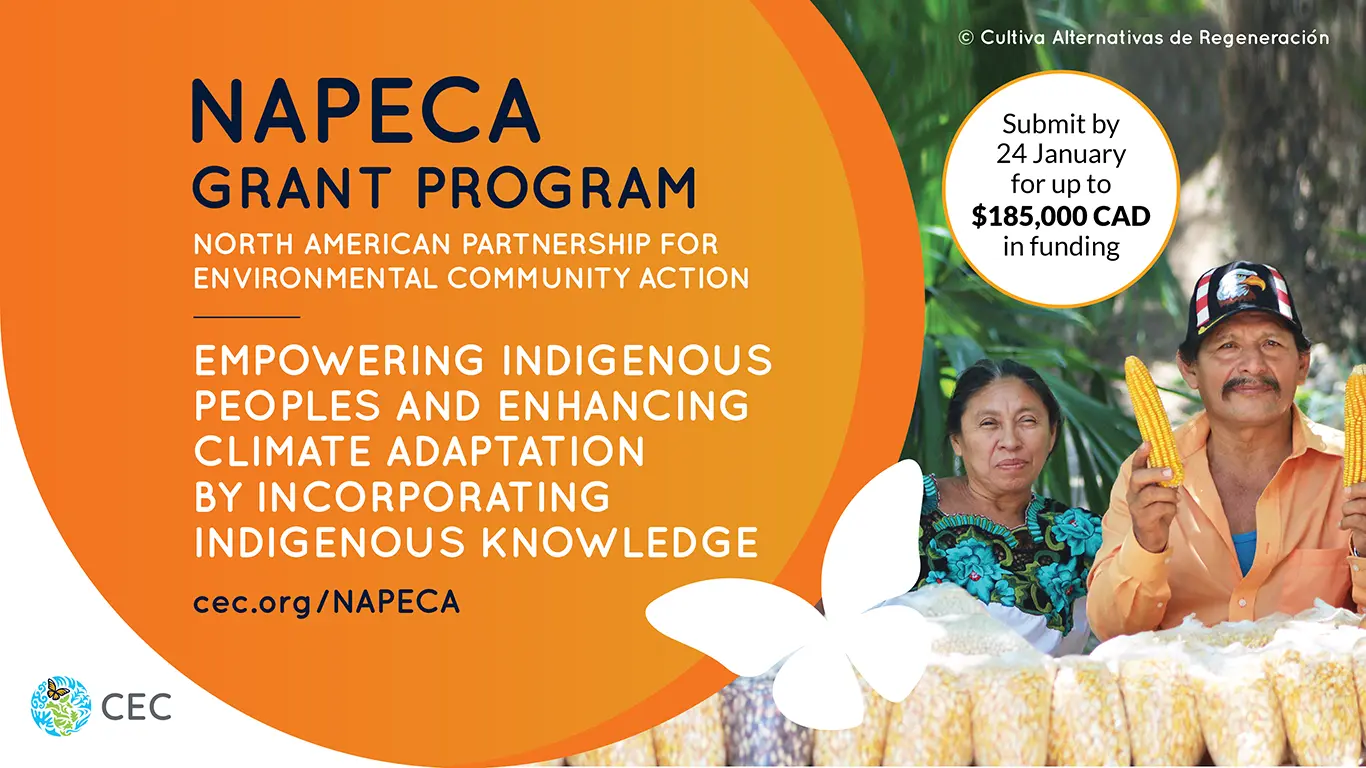2024–2026 CEC NAPECA Grant Program Funds 10 Grants to Empower Indigenous Peoples, Enhance Climate Adaptation and Support Indigenous Knowledge Systems
Tiohtià:ke (Montreal), 21 June 2024—The Commission for Environmental Cooperation (CEC) is proud to announce that 10 community projects were chosen under the North American Partnership for Environmental Community Action (NAPECA) grant program, which seeks to improve environmental conditions at the community, Indigenous, local and regional levels. This 2024–2026 NAPECA cycle is supporting environmental initiatives that will involve and empower Indigenous Peoples and communities and enhance climate adaptation by respectfully applying and protecting Indigenous knowledge systems.
The applicants were encouraged to submit proposals up to C$185,000. Eligible applicants were tribal nations, Indigenous Peoples and communities, entities which are incorporated as non-profit organizations, and academia in Canada, Mexico or the United States. The projects will be funded for a duration of 12 to 24 months.
The 2024–2026 NAPECA Grant Program recipients are:
UNITED STATES
- Women in Ranching
Project: Rooted in the Land: Empowering Indigenous Women in Ranching
- Flowering Tree Permaculture Institute
Project: Poeh Povi, The Flower Path: Indigenous Matriarch Farmer Collective
- California Indian Museum and Cultural Center
Project: Native Food as Resilience: Establishing the Indigenous Research Pipeline for Acorns
CANADA
- Métis National Council
Project: The Métis Nation Ignite Project
- University of Montana
Project: Community-led Monitoring of the Bluenose-East Caribou Herd Calving Grounds
- Memorial University
Project: Weaving Inuit Knowledge with Watershed Hydrobiogeochemical Characterization to Inform River Monitoring in Nunatsiavut
MEXICO
- Alterd Alternativas para el Desarrollo, A.C.
Project: Resilience of Nahua Native Species Beekeepers Households in Huasteca Potosina
- Departamento de Agroecología de la Universidad Autónoma Chapingo
Project: Repricing and Strengthening Farmer's Knowledges and Skills in the Santiago Acatepec Community
- Centro de Derechos Indígenas Flor y Canto, A.C.
Project: Community Actions to the Water Crisis and the Impact of the Landfill in Eastern Zaachila
- Instituto de Documentación de Lenguas Originarias, A.C.
Project: Intercultural Education as Climate Change Resilience Strategy in Ralámuli Communities in Mexico
How were proposals evaluated?
The Selection Committee evaluated more than 285 proposals. The selected projects meet the CEC Council’s strategic objectives for this program to support model environmental initiatives that will help build long-term partnerships and promote a shared responsibility and stewardship for the environment.
To learn more about NAPECA, visit our website.
If you would like to know more about CEC initiatives, opportunities and efforts, you can sign up for our newsletter and follow us on social media.
